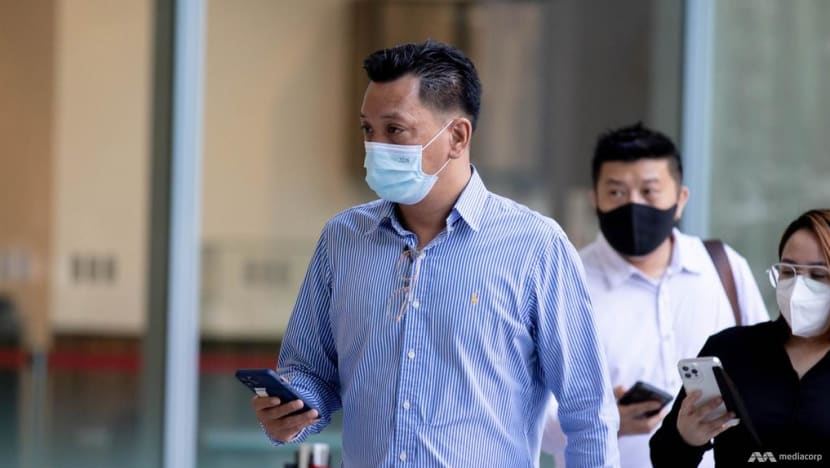Ex-CEO of Prive Group gets jail for punching boy after judge overturns mandatory treatment order
A High Court judge sentenced Jean-Luc Kha Vu Han to two weeks in jail after an appeal by the prosecution.

Jean-Luc Kha Vu Han outside the State Courts on Oct 21, 2021. (Photo: TODAY/Ili Nadhirah Mansor)
SINGAPORE: The former CEO of food and beverage company The Prive Group was on Wednesday (Oct 5) sentenced to two weeks in jail and a fine of S$3,500 for assaulting a teenage boy, after the High Court overturned his mandatory treatment order.
Jean-Luc Kha Vu Han, a French national, was initially handed a 12-month mandatory treatment order by a district judge in March, on account of his mental condition. Under the order, an offender will undergo psychiatric treatment in lieu of jail time.
But the prosecution appealed and High Court judge Vincent Hoong found that the sentencing principles of deterrence and retribution outweighed that of rehabilitation in his case.
Vu Han admitted last year to punching a 13-year-old boy on his temple and asking him lewd questions in a lift at a shopping mall in 2019. He was intoxicated at the time.
A psychiatrist from the Institute of Mental Health found that Vu Han had been suffering from bipolar disorder and had likely been having a manic episode with the possibility of psychosis at the time of the offence.
The psychiatrist found a "contributory link" between Vu Han's condition and his offending behaviour.
However, the prosecution appealed, arguing that the decision to impose a mandatory treatment order was wrong partly because Vu Han's psychiatric condition did not sufficiently reduce his culpability to justify such an order.
The prosecution's position was that the psychiatrist's assessment was both retrospective and premised on inaccurate facts.
It also argued that the principles of deterrence and retribution outweighed rehabilitation as Vu Han had carried out an unprovoked assault on a young victim, leaving him with psychological and physical scars.
Agreeing with the prosecution, Justice Hoong said in his oral judgment: "In combination with the numerous aggravating factors disclosed in the present case, I find that deterrence eclipses rehabilitation as the dominant sentencing consideration.
"I consider (Vu Han's) voluntary intoxication and the fact that he had committed the offences against a vulnerable victim who suffered psychological scars to be aggravating."
The judge noted that Vu Han's previous suitability report for mandatory treatment order did not offer adequate insight into the extent to which his offences were attributable to his bipolar disorder, as opposed to his intoxicated state.
The judge also rejected defence lawyer Teh Ee-Von's argument that mandatory treatment orders had been meted out to offenders who inflicted more serious injuries to victims.
"Even as the court should maintain a coherent approach to sentencing mentally disordered offenders, it must be alive to the fact that even the same type of mental disorder may afflict different persons to varying degrees and in diverse circumstances," said the judge.
In the same vein, he rejected Ms Teh's submission that a fine be imposed for the charge of causing hurt, based on similar past cases.
However, Justice Hoong did not agree with the prosecution's proposed jail term as he felt that the harm suffered by the victim did not warrant eight weeks' jail. The judge also found that a fine of S$3,500 gave sufficient weight to the sexual nature of Vu Han's insulting remarks.
"In closing, I make a few observations. The reality is that no two cases of mentally disordered offenders are identical. The present case should not be misconstrued as casting doubt on the veracity or potential severity of bipolar disorder," said Justice Hoong.
"Nor does it set forth a general principle that the court will invariably view claims by offenders that they committed offences while labouring under mental disorders with circumspection. Each case turns on its own facts."
















